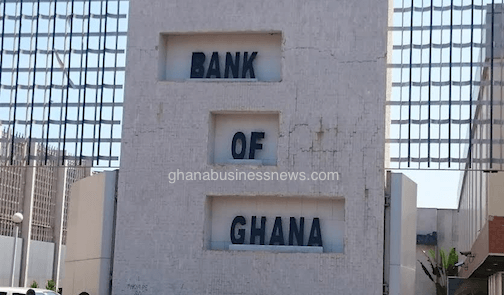Bank of Ghana rate cut is credit positive for banks – Says Moody’s
 The rating agency Moody’s says the 150 basis points policy rate cut by the Bank of Ghana last week is credit positive for the country’s banks.
The rating agency Moody’s says the 150 basis points policy rate cut by the Bank of Ghana last week is credit positive for the country’s banks.
Moody’s says in communication with ghanabusinessnews.com that the cut, which exceeded market expectations of a 100-basis-point reduction, is credit positive for Ghana’s banks because it will reduce their asset risks, which will outweigh the loss in profitability from lower interest income.
“Also, the rate cut signals abating inflationary pressures, indicating a gradually improving operating environment,” it added.
The Monetary Policy Committee of the Bank on Monday July 24, 2017, announced a reduction in the policy rate by 150 basis points to 21 per cent from 22.5 per cent, citing lower risk to inflation and growth.
“The disinflation process is still ongoing and this trend is likely to continue all through till the end of the third quarter,” Dr Ernest Addison, the Governor of the Bank of Ghana, told a press conference.
“Barring any unanticipated shocks, the current stance of monetary policy and expected stability in the exchange rate should ensure price stability.
“In the outlook, expectations are for the observed decline in headline inflation to continue and converge towards the medium-term target of 8±2 per cent in 2018,” he added.
Moody’s notes that since November 2016, the central bank has cut the monetary policy rate by five percentage points from a peak of 26 per cent,
This most recent rate cut is the Bank’s fourth consecutive reduction since November, and is in response to the central bank’s expectation that Ghana’s inflation rate will fall to its 6 per cent to 10 per cent target range from 12.1 per cent in June, Moody’s said.
Moody’s believes that this latest monetary policy rate reduction will reduce banks’ lending rates and asset risks, which increased substantially in 2016 and caused banks’ nonperforming loans to rise to 21.7 per cent of gross loans as of May 2017 from 14.6 per cent at the beginning of 2016.
“We expect borrowers’ debt repayment burden to fall further as the average lending rate decreases. The system average lending rate declined to 30.5 per cent in April 2017 from 32.03 per cent in November 2016, when the Bank of Ghana first began lowering the monetary policy rate, and we expect additional reductions in the system’s average lending rate to follow. Lower lending rates, together with declining inflation, will provide cash flow relief to borrowers, improving their repayment capacity and improving banks’ asset quality, although the system’s nonperforming loan ratio will remain high,” it pointed out.
Moody’s further states that the rate cut and falling inflation also will support Ghana’s operating environment, boosting demand for new loans and benefiting banks’ revenue. Real private-sector credit contracted by 0.8 per cent in 2016 because of Ghana’s economic slowdown, during which real GDP growth decelerated to 3.5 per cent from an average of 7.7 per cent in 2010-15.
“We expect GDP growth to recover to 6.1 per cent this year and 7.5 per cent in 2018,” it said.
According to Moody’s the rate cut will reduce banks’ interest income earned from treasury bills, whose yields have already declined by an average of about 600 basis points since November 2016.
The banks’ investment in government bills and bonds, Moody’s says was high at 21 per cent of total assets as of April, and the Bank of Ghana classifies 72 per cent of these as short term, which creates reinvestment risks for banks.
“However, banks will partly offset the effect of lower interest income by reducing their deposit rates, thus lowering funding costs that constrained interest margins and profitability in 2016, albeit from a high base. As an example, the 90-day deposit cost increased to 15.25 per cent in April 2017 from 13 per cent in April 2016.
The increased cost of deposits reduced banks’ interest spread to 4.1 per cent from 5.1 per cent over the same period, lowering profitability as reflected by an average return on assets that fell to 4.0 per cent from 4.7 per cent over the same period,” the rating agency said.
However, for GCB Bank Limited (B3 stable, b31 ), the only Ghana-based bank that Moody’s rate,the egency indicated that the rate reduction will benefit its asset quality.
“However, the lower rate will likely harm GCB’s interest income because of its large sovereign debt portfolio (about 43 per cent of total assets as of the end of 2016),” it noted.
By Emmanuel K. Dogbevi
Copyright ©2017 by Creative Imaginations Publicity
All rights reserved. This news item or any portion thereof may not be reproduced or used in any manner whatsoever without the express written permission of the publisher except for the use of brief quotations in reviews.
